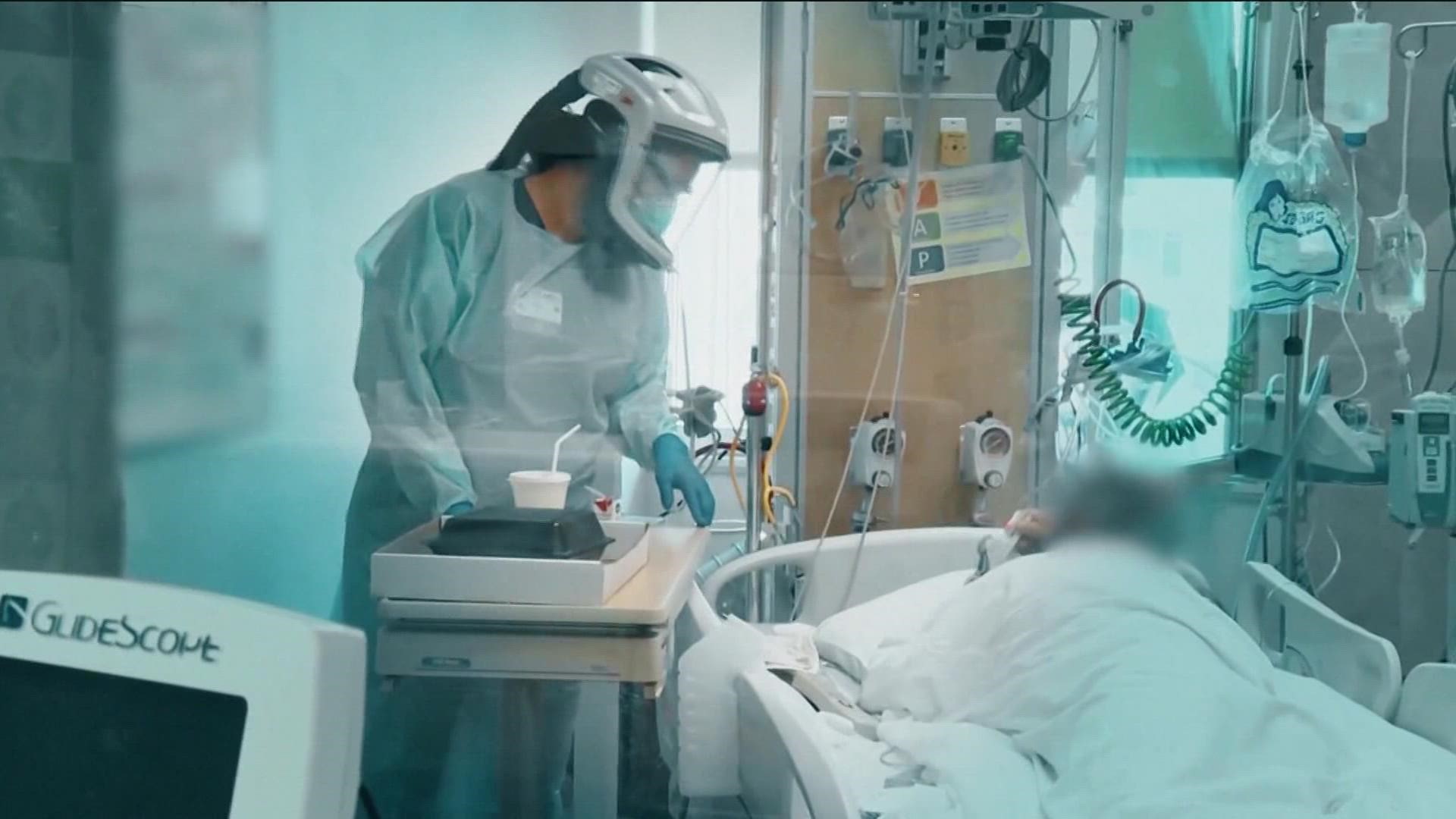ATLANTA — Almost two years into the pandemic, health care systems continue to struggle with staffing. The situation has only been made worse by this latest surge, increasing the need even more for travel nurses, like Heather Eisdorfer, who signed up and left Atlanta for her first assignment in New York at the start of the pandemic.
"It looked like you were in a war zone, there were just bodies. We didn't have places to put the bodies," said Eisdorfer.
From New York to Texas to California to Louisiana, Eisdorfer says it's gotten better in some ways as we learned more about the virus. She's worked in different hospitals with different doctors and protocols, but she says they all have some things in common -- like overcrowding in the ER.
"People using the ER as a testing center versus this is a place for emergencies, so we're unable to see a lot of critical patients because a lot of rooms are filled with 'Oh, I think I have COVID symptoms,' instead of going to a testing center they go to an ER," said Eisdorfer.
And burnout is still a major concern everywhere.
"People expect us to be robots and expect us to go to work, do our job, go home, go back to work...for a 12 and a half hour shift not being able to take use a bathroom or drink water its hard on your body, really hard," said Eisdorfer. And it's not only hard physically.
"Working during this crisis has given so many people who don't have mental health: anxiety, depression, PTSD," said Eisdorfer.
During this latest surge, Eisdorfer says there is some hope since they're seeing fewer patients who are severely sick.
"But still affecting the elderly and immunocompromised patients, and a lot of kids," said Eisdorfer.
It is keeping the ERs full with traveling nurses like Eisdorfer, on the front line.
"Not everyone is the nicest in the ER because it's a stressful environment so continuously reminding yourself that this could be the patient's worst day, but you're here to help," said Eisdorfer.
She says she will likely take a few months off after this assignment wraps up to give herself a beak, and encourages other health care workers to press for time off to protect their own mental health.

